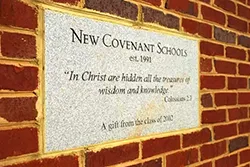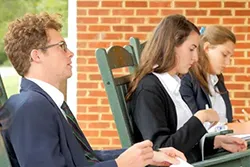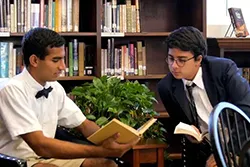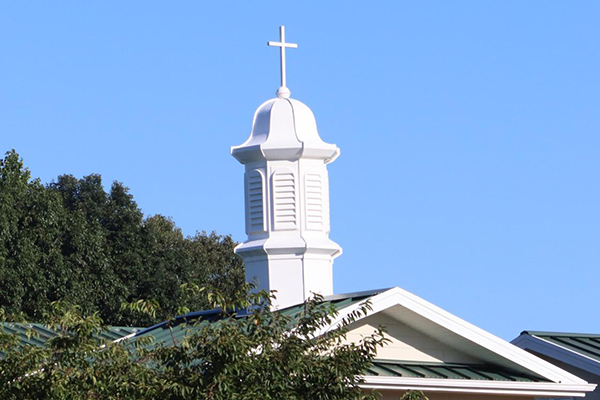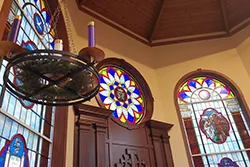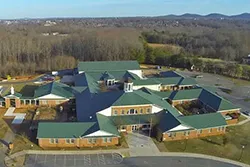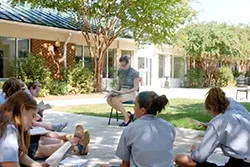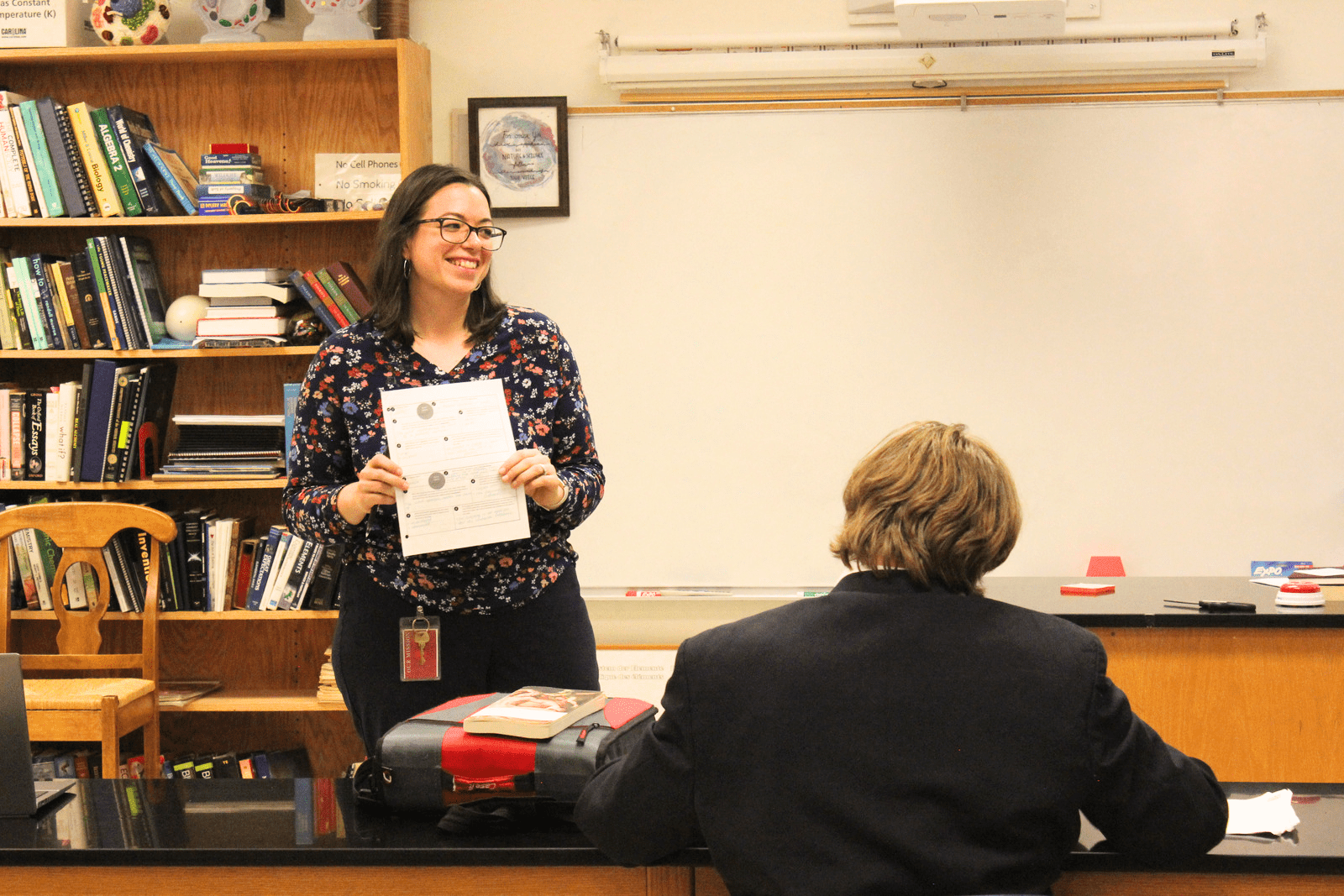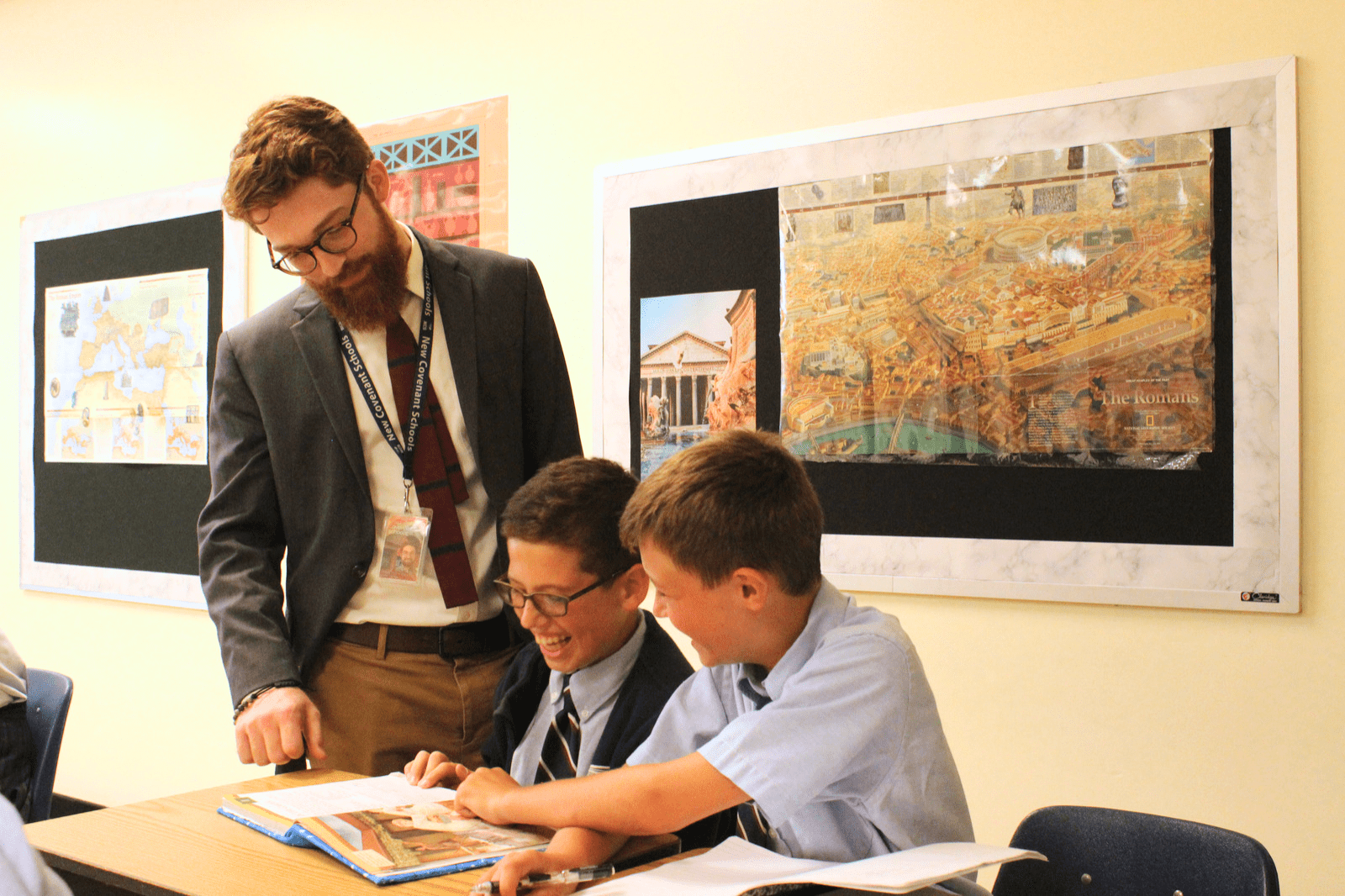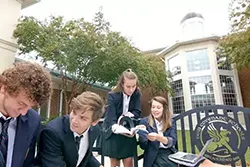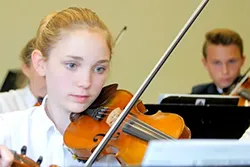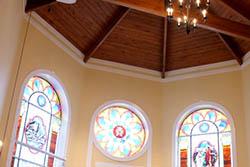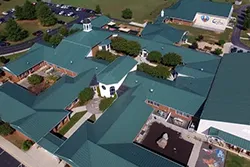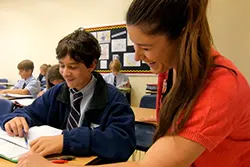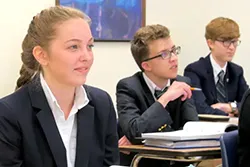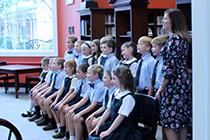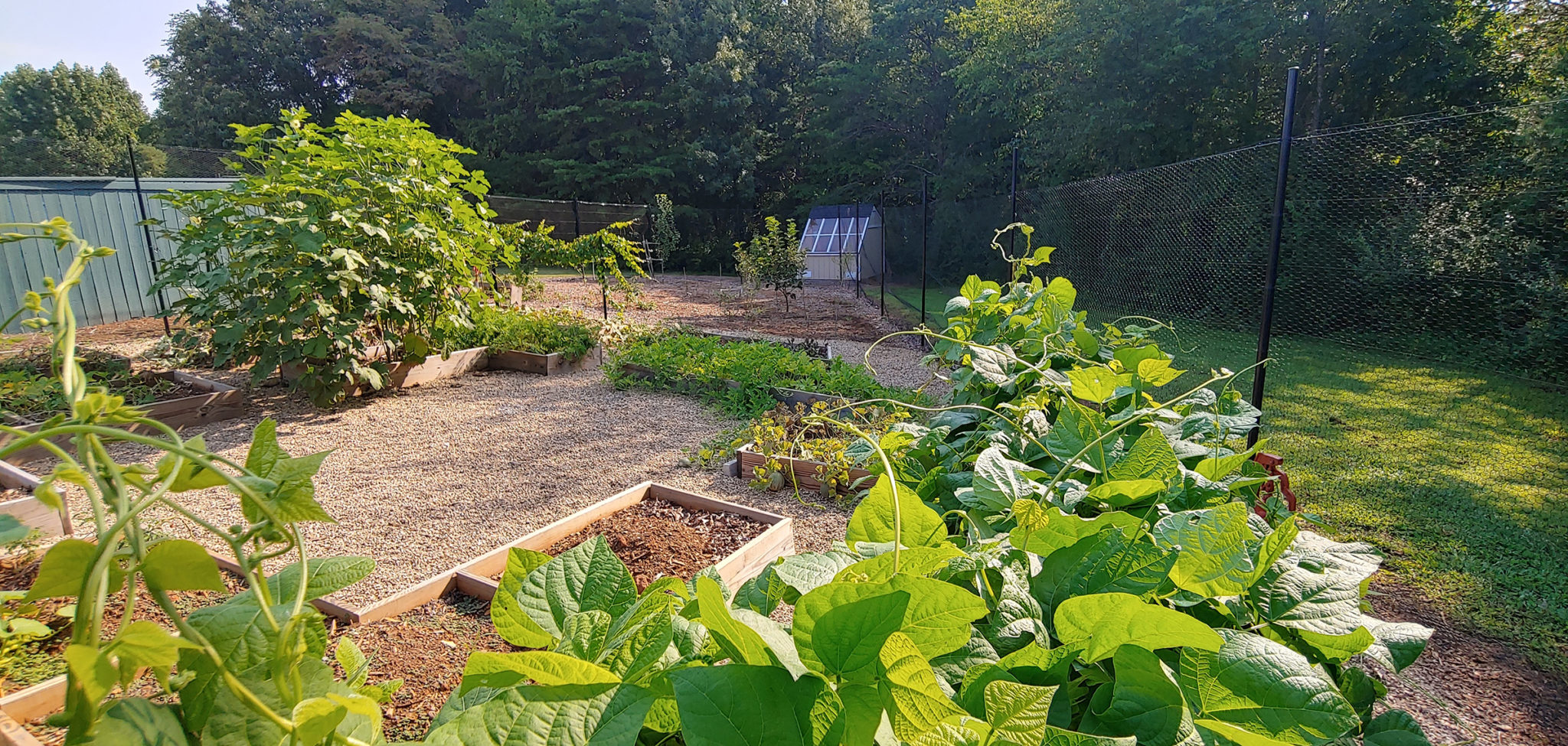It is very good to be back together in school. As students returned I was excited that Jessica Simpkins and other volunteers were able to tend the Gryphon Garden over the summer months. They had hoped the students could return to enjoy harvesting a few things as the school year began. We have not been disappointed. The garden is producing!
All around the campus, too, our Facilities Manager, Darren Johnson, has been laying out flowers and cultivating the beds. Many of our students helped during Hands & Hearts, which was held in July because we missed our spring date. You’ve probably seen the flowers they planted around the parking lots, and appreciated the color they add to our school.
A garden is one of the best places to explore and understand everyday beauty where, as Roger Scruton notes, “Leisure, learning and beauty come together in a liberating experience of home.” Gardening is a recreation universal to human beings. Have you ever wondered why? Even people who don’t keep gardens can take pleasure in those created by others. Scruton observes, “A garden is not an open space, like a landscape, but a surrounding space. That which grows and stands in it, grows and stands around the observer.”
Everything in a garden is intentional; it is placed there by the grower. It is a place where nature is allowed to be nature, but where nature is also subject to boundaries and limitations the gardener places upon it. Fields and forests have their own beauty, but such beauty is unrestricted. I have often looked out over our farm in Bedford County and thought that certain trees were out of place or needed to be trimmed or even removed. Nature, of course, doesn’t care about my view of peaks and pastures. The beauty I find in looking over my field and stream is attended with an “out-of-place-ness” of certain features in the landscape.
Not so with gardens. In a garden nature does its thing to be sure, but in gardens we plan, we plant, we sculpt, we create pathways, and we place benches. The end result is that we create an “in-between” space, a blend of unrestrained nature with disciplined limits. It remains wild, but ordered, and by no means reduced to a rigidly human construction. This balance according to Scruton is how we “match our surroundings to ourselves and ourselves to our surroundings.” We make an aesthetic judgment, and the word we use to describe a garden is the word “beautiful.” A garden does not merely feed us, it creates a conversation with us; “it is the unavoidable consequence of taking life seriously, and becoming truly conscious of our affairs.”
A well-gardened campus like New Covenant, complete with courtyards and hidden places, along with a vegetable patch with fruit trees and berry bushes, contains surprises of nature from season to season. This is no accident. It is as intentional on our part as the math or Latin curriculum. Our students are not only learning about gardening, but some of them are even having chapel services in the midst of grapes and melons! Getting out of the classroom with our students a little more during these summer months is not only a healthy thing for our bodies, but at New Covenant, it is a healthy thing for our souls.
Roger Scruton, “Beauty, A Very Short Introduction” (Oxford: Oxford University Press, 2011), p. 67-69.


